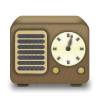Community Media/FADECO/Farmers Info Sharing
INFORMATION SHARING WITH FARMERS AT FADECO RADIO
April 29, 2009
FADECO Community Radio is a local radio in NW Tanzania. Its programming is characterised with a strong focus on rural development (65%) with the rest of the air time distributed among 25% news and general information and entertainment (culture, history, arts) at 10%. Agriculture takes the lion's share of our programming.
The main challenges for a rural community radio are related to information/ content generation, repackaging, dissemination and feedback (monitoring to see if the message are making any meaningful impact on the listeners). In order to address this challenge, FRC 100.8 FM has sought to use the available ICTs both for content generation and for getting a feed back from the farmers or listeners. And here is how it works at FADECO:
FADECO is trying to bring Internet, mobile Phones, computers and radio to work.
1. Information gathering/ content generation
Farmers walk to FADECO to ask questions and report agriculture related problems or other concerns facing them. As a one stop centre for information, the staff at FRC 100.8 FM receive the questions, and pass them onto competent staff (who can respond or refer the questions to other experts or identify experts who can respond to the questions). Referrals to experts is normally done via email. Sometime internet searches are made. Sometimes searches are made in our offline resource base (compendia, books, cd-rom libraries).
Sometimes farmers send text messages to our office mobile number. In the past months, FRC 100.8 FM has signed a contract with a SMS management company in Dar es salaam and has been allocated 2 short code numbers. What the farmer does is to use his/ her mobile phone:
Go to write new Message: Write FR.. leave one space, write a question and then send to 15551 or Write EFR .. leave one space, write question and send to 15522.
The question is delivered directly to our computer via a web managed system. We are therefore able to print it off, respond directly or email the question to our experts.
The farmer receives a received note on his/ her mobile phone immediately to confirm the message is received at FADECO.
After the question/ request is processed, we make a radio program with the response. Unfortunately, we cannot call nor text individual farmers who send questions.. we do not have the money. So when we have the answer, in a radio program, we just broadcast on radio to the benefit ot the individual farmers that asked the question and of many other farmers who may be listening.
2. Use of ICT infrastructure by journalists
At FADECO COMMUNITY RADIO, the facility is making it possible, not only to provide the traditional telecentres services (internet and library services) but now in a big way, we are able to package, re-package and develop information into radio programs that are broadcast via FADECO RADIO. This is a big achievement.
This therefore also now underscores the involvement of journalists with FADECO TELECENTRE. To start with, FADECO radio has teamed with a number of journalists who provide news to the station; while at the same time, taking news to from the station.
The following information, illustrates how journalists use the telecentre:
- To access news stories from the Internet: Journalists use our Internet facilities to search news stories from the internet, some of which are used on our radio station.
- To use the Internet to communicate with other journalist to send stories or news via email. I have seen also journalists use SKYPE to communicate and provide live reporting to their bureaus in Dar es Salaam, Tanzania
- To benefit from integrated ICTs: we have in place VSAT for internet access, Fax, telephone services (landline and mobile). These ICTs are used integrally for content generation (esp. news) and for communication with others.
- To send faxes or receive faxes, check their emails as mentioned above, but also most important, they use our facilities for interviewing, recording, and editing. The telecdntre is laos used as a meeting place for journalists in the area. Some of them prefer to use the centre also for their meetings and;
- For ONLINE study. I have seen 2-4 journalists coming to the FADECO Telecentre, just because they are doing online journalist or media studies.
- For secretarial purposes like to write their stories or to print them or to photocopy documents. A few have borrowed our recorders, after which they download content on the computers, edit them and go away with content edited and stored on CDs.
This is a rather fragmented narration of the general benefits of FADECO RADIO/ TELECENTRE to the general public and on how we are integrating different ICTs.
- Joseph Sekiku
